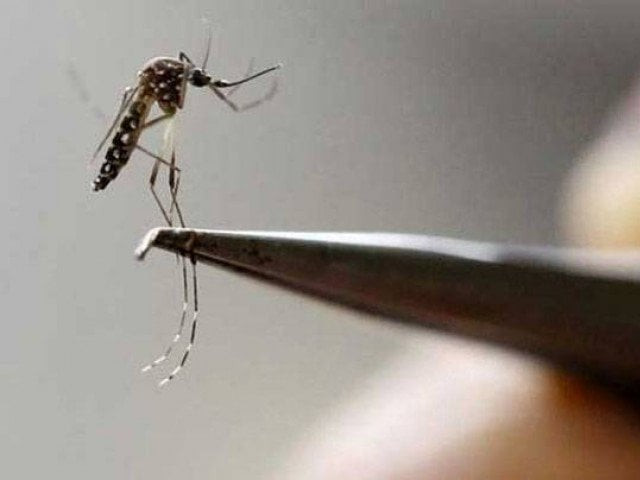Weather, urbanisation major cause of dengue outbreak
Experts urge targeting mosquito breeding spaces as another man falls victim

Experts urge targeting mosquito breeding spaces as another man falls victim. PHOTO: FILE
Around 16,000 cases had been reported in 2013. This dropped to just 800 in 2016, though this was up from 600 reported in 2015. Swat, on the other hand, has not reported even a single case for last two years after health officials there targeted mosquito breeding sites.
While both Khyber-Pakhtunkhwa (K-P) and Punjab government have joined hands to overcome the rising number of dengue virus cases, health experts fear that the challenge is far from over since the monsoon season was ideal for dengue mosquitoes to lay eggs and multiply.
They stated that research has proved that mosquito larvae, which can lead to a spread of the dengue virus, can survive in stagnant or contaminated water. These potentially dangerous mosquito eggs can only be killed by spraying detergent over them.

According to officials, they had refocused their efforts on targeting larvae to protect the people against infections which have so far claimed eight lives.
The latest victim was a 70-year old Charsadda native who died at Khyber Teaching Hospital (KTH) on Friday.
Currently, around 2,000 people have been confirmed to be infected by the virus with as many as 70 still seeking treatment at health facilities.
“[All] larvae can be destroyed but this is only possible after combined efforts, involving community and steps are being taken to ensure it but what we are worried about is mosquito eggs since they cannot be destroyed,” said Dr Iftikharuddin, an assistant professor of Community Medicines at the Bacha Khan Medical College.
Dr Iftikharuddin, who helped overcome a similar crisis in Swat where some 16,000 cases were reported in 2013, told The Express Tribune that they have the same target in Peshawar, hitting potential mosquito breeding sites.
“You can only get rid of this virus by hitting the breeding sites and once the breeding sites are controlled, eggs will not be able to hatch,” he explained, adding that the current weather was ideal for mosquitoes to lay eggs, and once the mercury drops down to 20 to 30 degree centigrade, it will pose a serious threat for another outbreak.
These eggs, a health official said, will likely hatch in mid-February in the provincial capital and in March in the hilly areas of Khyber-Pakhtunkhwa.
“We must shift our focus from killing larvae to the eggs. If we fail, we will face a bigger outbreak in the future,” the health official said, as he refused to share his identity since he was not entitled to speak to the media.
Meanwhile, K-P Health Director General Dr Shabina Raza confirmed to The Express Tribune that 99 per cent of dengue patients did not even feel the viral infection.
“Even among the one per cent, 50 per cent recovered but others could become victims after their blood thickened and blood pressure lowered,” she said.
Published in The Express Tribune, August 26th, 2017.



















COMMENTS
Comments are moderated and generally will be posted if they are on-topic and not abusive.
For more information, please see our Comments FAQ